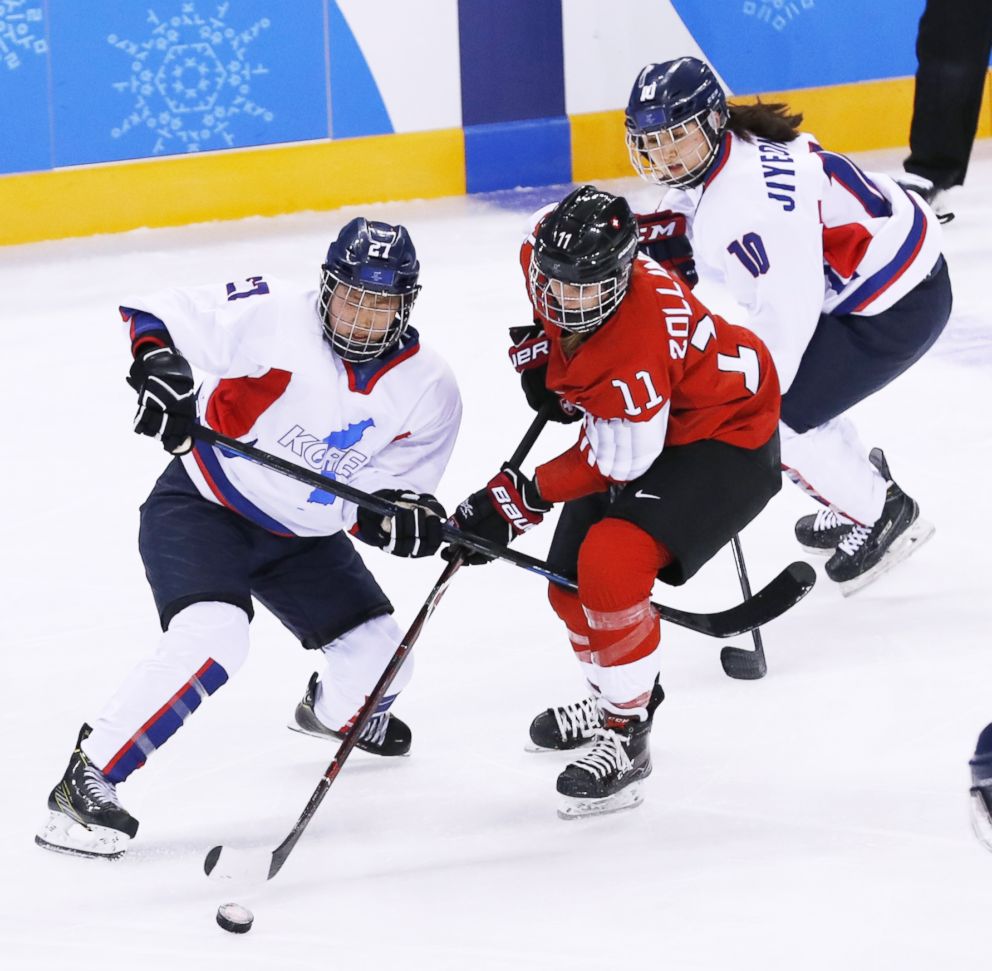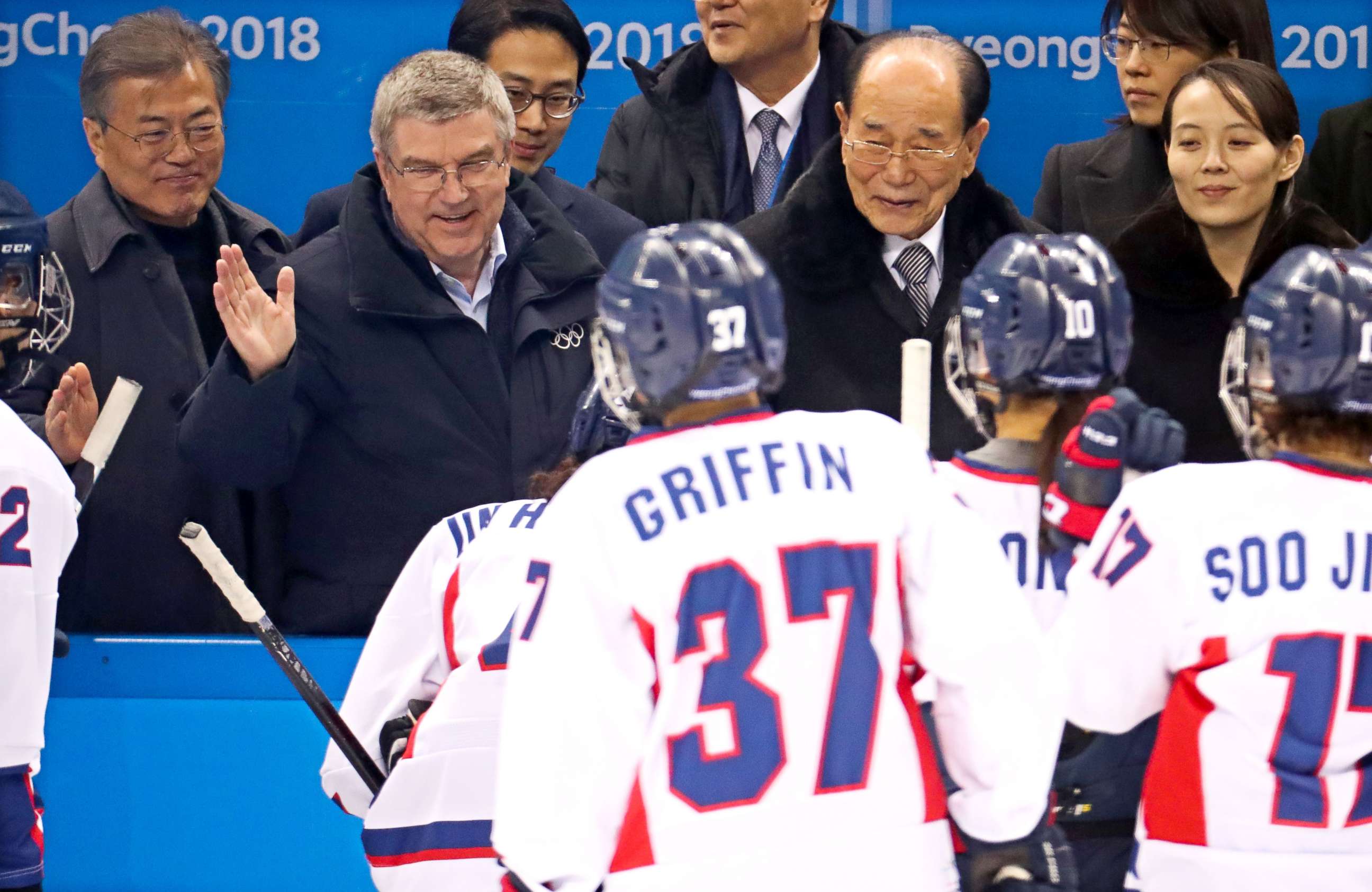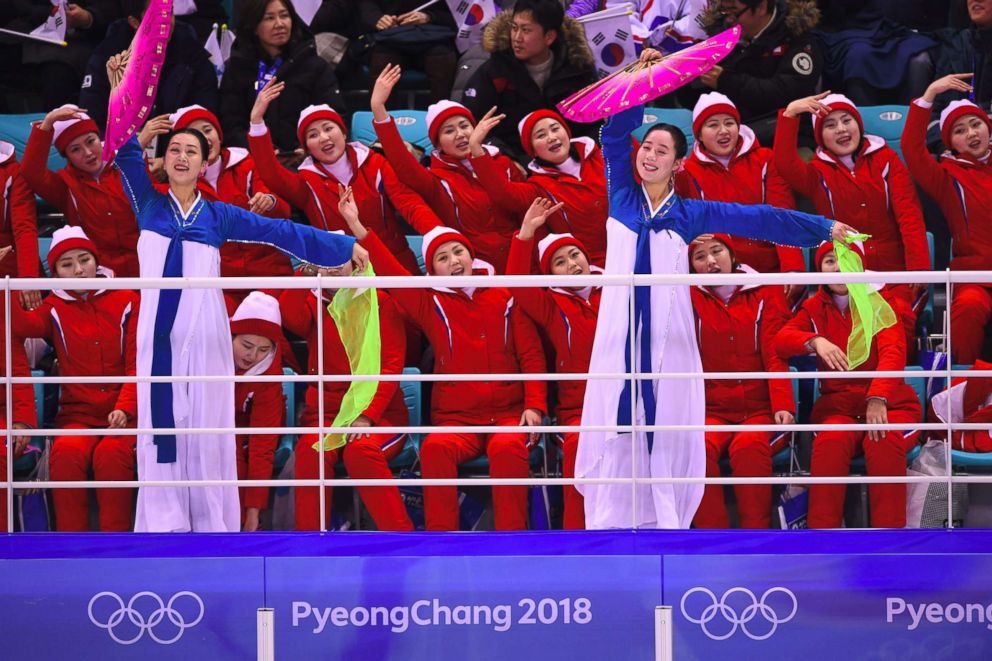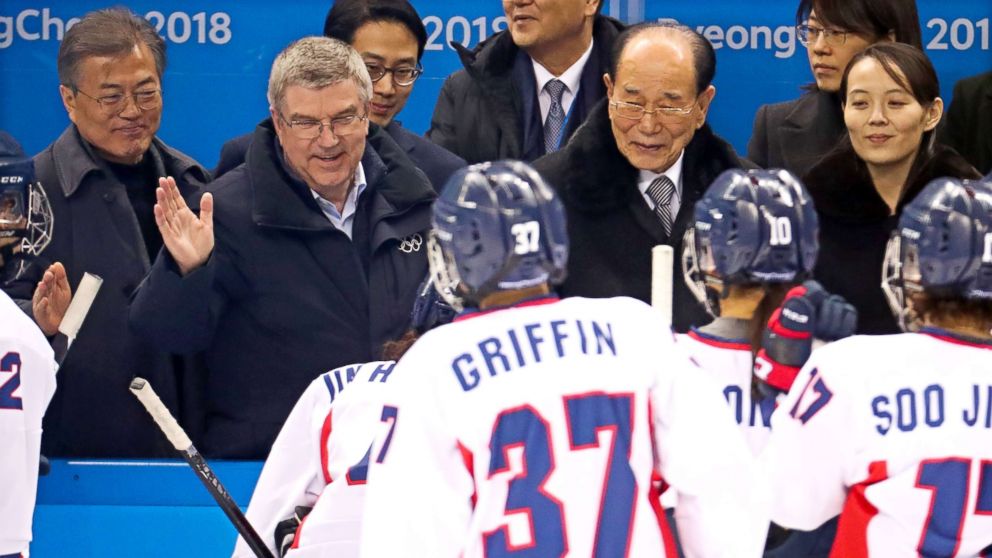Reporter's Notebook: Despite unity efforts, cultural divide between Koreas
Gangneung, South Korea -- At the ice hockey game in the Gwandong University in Gangneung, South Korea, two worlds -- and cultures -- seemed to collide. The North Korean cheering squad touted its perfectly choreographed routines, while the South Korean home crowd directed its attention elsewhere -- to loud, pop western music played during short intermissions.
As much as politicians of the two Koreas wanted to stage a "unified" front, the effort seemed to a bit tone-deaf to everyday Koreans, who appeared to be culturally divided.
Korea’s unified Olympic team lost 8-to-0 against Switzerland women’s ice hockey team on Saturday, the first game ever played by a Korean hockey team in the Winter Olympics.

South Korean President Moon Jae-in made a surprise appearance with North Korea’s Kim Yo-jong, the sister of leader Kim Jong-un, and North Korea’s ceremonial head of state, Kim Yong-Nam. International Olympic Committee (IOC) President Thomas Bach sat between Moon and Kim Yong-Nam just behind a group of North Korean cheerleaders sporting red tracksuits.

It was my lucky day as I arrived at the stadium just after spotting Kim Yo-jong and her entourage arriving at a banquet at Skybay Hotel nearby. She was taller than I had expected, straight postured, dressed in a black skirt suit, lips tight and walked slow paced as dozens of security officers escorted her into the hotel lobby and then onto an elevator.
Later, as I entered the ice hockey arena, my luck continued: I found my seat was just in front of 30 North Korean cheerleaders. They were seated in two rows with middle-aged North Korean men in Olympic uniforms on each side of the isles seats.
I soon find out there were more. Groups of about 30 cheerleaders each spread out in six different sections. A cheering squad comprised of 229 North Korean young women had crossed the border into South Korea this week. Now they were in the stadium for their much-anticipated debut at the Olympic Games.
Just after an announcer introduced each player, the match started with classic verses from the song “We Will Rock You” by Queen blasting from the loudspeakers. More than 3,600 spectators in attendance started singing along.
The North Korean cheerleaders remained silent for a few seconds, then started singing their own Korean songs, taking a cue from a leader who stood in front of the groups in the middle of the stadium.
Awkward confusion filled the air.

South Korean spectators, who made up the majority of the crowd, looked puzzled. Some watched in amusement, some simply showed ignorance.
"It’s a bit strange," the woman who sat next to me says.
"Their style is so different from us. The way we cheer is more freestyle, and the way they do it is creepy, almost like a rigid choir performance," said Kwon Hae-Jin, who was holding her 3-year-old daughter.
As the game went on, the North Koreans repeatedly chanted “Proud of You" or "We Are One" in a high-pitched tone, both hands open in front of their faces to make a louder sound effect.
Then I realized that tone: It’s the sound supporters make when North Korean leader Kim Jong-un makes an appearance before a large crowd, which I have seen and heard numerous times monitoring their national news broadcast for almost 20 years.
All their songs, chants, and cheers are of that same high-pitched sound. By contrast, when North Koreans speak, it is a lower tone, much like everyone speaks on a normal basis.
And then at the stadium, the sounds clash again: the stadium begins blasting a mix of western music -- rap, techno, K-pop -- set against North Korean folk songs and cheers.
At one point, the cheerleaders tried to lead the spectators into doing a wave. South Korean sports spectators are conventionally famous for actively participating in these group cheers with enthusiasm. But the reaction was nearly nonexistent, almost to a point of embarrassment.
Rewind to 2002 and 2003, when North Korea sent cheerleaders to sporting events held in the South. I covered those games as a reporter and remember how the South Korean public adored these women with passion and huge fanfare. The crowd sang along and shouted chants together.
But fast forward to 2018, and the contrast was indeed vivid, the cultural gap wider than ever.
"When they came into the stadium, we all said hello, nice to meet you, and they responded in a natural way. But they suddenly turn robotic, doing moves all in one formation. It was a turn-off,” said Eunmi Kim, a communications professor who traveled from Seoul with her husband and teenage daughter to cheer for the unified Korean team.
The collective cold shoulder by the public was evident, especially among the younger generation of South Koreans who have not had much contact with the North. Asked how she felt about the sudden turn of events, and a mood of detente between the two Koreas, a mother of a toddler sitting next to me shrugged.
"I don’t really think deeply about North Korea. If there’s peace achieved then that may be a good thing," she said. "But we [South Koreans] may be kowtowing too much [to the North].”
During break time the audience gets excited when a popular hip-hop duo, Dynamic Duo, appears on stage. Some began bouncing to the rap as funky beats filled the arena.
Then again, seemingly oblivious to the sounds, the North Korean cheerleaders cut into the middle of the rap and started their own chants, this time standing up, clapping and waving their arms in perfectly orchestrated moves.
They repeated the strange encounter during the second break, when the audience was urged to dance to sexy techno music, all as cameras roam the crowd to select the best dancer. A young boy won the contest and had his time on camera to show off his winning dance.
North Korean cheerleaders cut in again, chanting even louder: “We are one. We are one."
"My feelings are mixed," said Lee Kyu-hoon, 49, who came with his boys, both hockey players. "Unification is what I was taught to long for. Of course, we are all Koreans and should be reunified. But look at us. We are culturally too different now."




